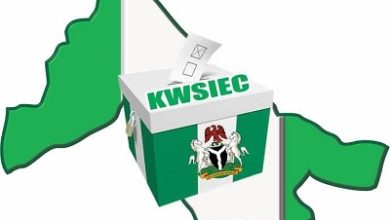Burden of litigations on INEC and way out

On a general note, our elections come with varied litigations over big and small issues. Sometimes, the court cases are simply for disruption sake, at other times, they could be for serious cases of injustice, miscarriage of justice and other forms of bad behaviour. An outsider looking in will think that our propensity to head to court over electoral issues show how orderly we are. It is until you witness the elections and see the maneuverings and sometimes violence that overshadow them you will realize that the litigations are a continuation of disruptive tendency of an average politician.
This year’s election cycle has been particularly heavy on litigations. It is difficult to point out why it is so knowing that there were probably visible improvements in the system, however, facts on ground clearly show that 2019 elections has had the most litigations since Nigeria began to hold elections. The Independent National Electoral Commission, INEC says it recorded over 1,689 court cases arising from the 2019 general election. Mallam Mohammed Haruna, INEC National Electoral Commissioner in charge of Niger, Kogi and Nasarawa states disclosed this on Thursday in Lafia during the state level post election review retreat.
Haruna explained that more than 890 of the cases were pre-election matters arising from conduct of political party primary elections, while 799 were election petitions at the various tribunals across the country. There is no gain repeating the obvious, but according to him, the pre-election cases indicated that political parties needed to put their acts together in order to deepen the nation’s democratic process. Parties and their members behave like adversaries. The ruling party, All Progressives Congress, APC apparently has most of the cases. The issues it had with its internal affairs shows in the number of seats it has lost around the country owing to internal issues that ended up at the Supreme Court.
Haruna also said that the cases before the election petitions tribunals showed that much still needed to be done to improve on the electoral process. “We are here to review what we did for this year’s general election with a view to improving on our subsequent outing.
You will agree with me that any document is work in progress, you can never get it perfectly.” He expressed optimism that from the review of the 2019 general election with inputs from the various stakeholders, subsequent elections would be better than the previous as noticeable pitfalls would be addressed.
The National Commissioner cited the unprecedented number of political parties that participated in the 2019 general election as one of the challenges that the commission faced during the conduct of the polls.
There is no question about managing the unwieldy number. Over 70 political parties was simply too many with the kind of laws that must be followed. It is important therefore we find a way to reduce that number. One of the ways is to add a caveat to the regulations guiding political parties that once they are registered they are expected to win a particular percentage of votes or seats to be confirmed as national parties. Failure to do so means they become regional parties, state parties or even local parties depending on the grading.
This will help manage the presidential election for example where every Dick, Tom and Harry start their political career so long as they fulfill the obligations expected of an association before it is registered as a party. Every party must not be a national or regional party. We can have as many political parties as we like but they must be graded in a way to accord with commonsense. That the constitution guarantees registration of political parties does not mean every of such parties must be on the ballot for national elections.
It was not all gloom and doom as the Resident Electoral Commissioner in Kwara State said the state recorded very low litigations. He said that there were no much complaints from the elections in the state given the minimal numbers of cases. That we have this small number means that there was a level of satisfaction but some people just want to prove points by going to the tribunal,” he said. Post election review is very crucial to enable the commission and other stakeholders correct identified lapses and consolidate on the successes recorded.
Kwara State generally unlike other states recorded very minimal altercations. And the new opposition in the state showed a level of maturity that even surprised the winners. We recommend this attitude to other politicians across the country.
Litigation weigh INEC down. It eats up the commission’s finances and distracts it from major issues. Its even worse as pre-election matters also drag INEC to them. At every turn INEC is expected to send a legal representation of court to make appearances on matters it knows very little about. Politicians must endeavour to obey their own internal rules, hold clean and fair primaries so as to reduce litigations going forward.





